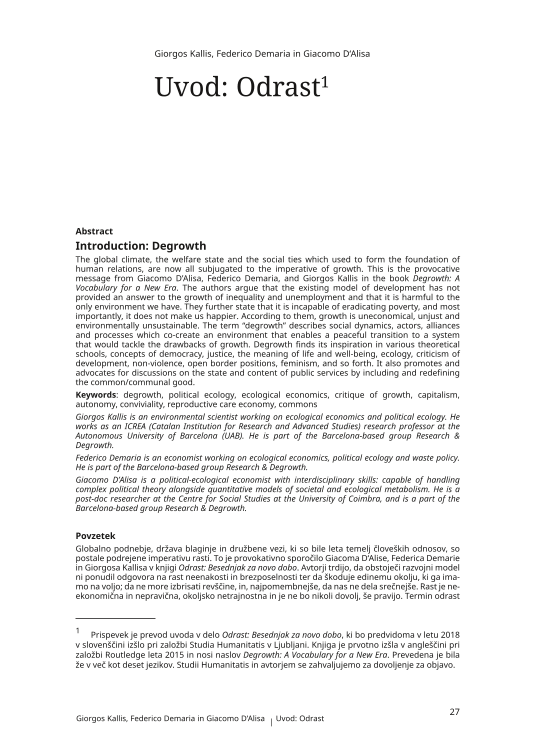The global climate, the welfare state and the social ties which used to form the foundation of human relations, are now all subjugated to the imperative of growth. This is the provocative message from Giacomo D’Alisa, Federico Demaria, and Giorgos Kallis in the book Degrowth: A Vocabulary for a New Era. The authors argue that the existing model of development has not provided an answer to the growth of inequality and unemployment and that it is harmful to the only environment we have. They further state that it is incapable of eradicating poverty, and most importantly, it does not make us happier. According to them, growth is uneconomical, unjust and environmentally unsustainable. The term “degrowth” describes social dynamics, actors, alliances and processes which co-create an environment that enables a peaceful transition to a system that would tackle the drawbacks of growth. Degrowth finds its inspiration in various theoretical schools, concepts of democracy, justice, the meaning of life and well-being, ecology, criticism of development, non-violence, open border positions, feminism, and so forth. It also promotes and advocates for discussions on the state and content of public services by including and redefining the common/communal good.




